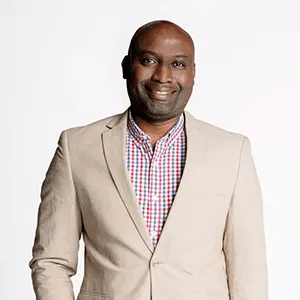Online Marriage Counseling After Infidelity
|
Getting your Trinity Audio player ready...
|
The discovery of an affair is an earth-shaking event in a marriage. It destroys the foundation of trust, safety, and shared history in an instant, leaving behind a landscape of shock, profound hurt, and confusion.
The betrayed partner often feels lost and heartbroken, while the unfaithful partner may be wracked with guilt and shame. In the aftermath, a single question hangs in the air: “Can we ever recover from this?”

While the statistics are daunting, 54.5% of cases where infidelity occurred lead to divorce, it’s crucial to know that healing is possible.
Approximately a third of marriages not only survive but can emerge stronger and more connected. This recovery doesn’t happen by chance; it requires intentional, structured effort from both partners.
For many couples, online marriage counseling after infidelity provides the essential guidance, privacy, and flexibility needed to navigate this incredibly challenging journey.
It offers a lifeline; a dedicated space to process the pain, understand what happened, and slowly, carefully, begin the work of rebuilding trust after cheating.
In his writing on betrayal, John Gottman, PhD emphasizes the trauma infidelity inflicts.
“If you were the victim, don’t pressure yourself to heal on any schedule. Respect that you are fragile right now. Discovering that the person you entrusted with your heart betrayed you may lead to questioning everything… Often you can’t help ruminating… Disturbed sleep, flashbacks, depression, obsessive and intrusive thoughts… are common. These are all indicators of the same posttraumatic stress disorder soldiers sometimes experience.”
By likening affair fallout to PTSD, Gottman highlights the need for compassionate, patient therapy (including online formats) to process anger, trauma, and grief before trust can be rebuilt.
Common Challenges Couples Face After an Affair

Infidelity is a major breach of trust and can leave a lasting impact on the relationship. In her book Healing from Infidelity, Weiner-Davis, MSW (Marriage Therapist and Author) cautions that
“Healing from infidelity isn’t easy. It’s not for sissies. It’s hard work. You have to be willing to do whatever it takes to turn things around.”
The path to recovery is rarely simple. Couples must brace themselves for a series of common and deeply challenging obstacles.
Trust Issues
The most immediate casualty of an affair is trust. The betrayed partner may experience constant suspicion, engaging in checking behaviors like scrolling through phone records, emails, or social media accounts.
This hyper-vigilance is exhausting for both people and can create a prison of doubt and anxiety.
Emotional Distance
It becomes incredibly difficult to feel close. One partner may be drowning in grief and anger, while the other may be withdrawn in shame. This emotional chasm can feel impossible to bridge, leading to loneliness even when you’re in the same room.
Communication Breakdowns
Conversations either become explosive arguments filled with blame or are avoided entirely out of a fear of making things worse. Couples often stop talking about anything meaningful, as every topic seems to circle back to the pain of the betrayal.
Managing Triggers
Recovery is filled with “triggers” which are sudden, painful reminders of the affair. It could be a song on the radio, a place you drive by, or even a specific time of day. These triggers can bring back the initial shock and hurt in a wave, making it feel like you’re back at square one.
How Online Marriage Counseling Supports Recovery

Traditional in-person therapy can feel intimidating for couples dealing with the raw vulnerability of infidelity. Virtual couples therapy for betrayal offers a modern, accessible alternative that is uniquely suited for this sensitive healing process.
Safe and Neutral Space
An online therapist provides a neutral, third-party presence in a setting where you feel most comfortable, your own home.
This can make it easier to open up about deeply painful feelings without the fear of judgment, facilitating honest conversations that are essential for healing.
Flexible Scheduling for Difficult Conversations
The logistical stress of traveling to an appointment can add unnecessary tension before a session even begins. Online help for marriage after an affair allows you to schedule sessions at a time that works for you, even if you’re in different locations.
You can have a difficult conversation and then immediately have the privacy to process your emotions afterward.
Structured Healing Process
Perhaps the greatest benefit is structure. A skilled therapist doesn’t just let you talk; they guide you through a proven relationship recovery program.
This step-by-step process such as one offered in our Love and Trauma course, helps you move from crisis management to understanding the underlying issues, and finally, to actively rebuilding the relationship, ensuring no critical step is missed.
Key Skills Learned in Online Counseling After Infidelity
A specialized counselor equips you with the practical tools needed to navigate each stage of recovery.
Rebuilding Transparency
The unfaithful partner must learn to be radically transparent; not to punish, but to rebuild safety.
This involves voluntarily sharing information (like passwords or schedules) without being defensive and answering questions honestly without oversharing graphic details that could cause further harm.
Emotional Regulation
Both partners learn to manage overwhelming emotions. The betrayed partner learns healthy ways to express anger and hurt without destructive outbursts, while the unfaithful partner learns to sit with their partner’s pain without becoming defensive or shutting down. This is crucial for de-escalating conflicts.
Forgiveness as a Process
Counselors reframe forgiveness not as a single event, but as a long-term process. It involves making a conscious decision to let go of resentment while still acknowledging the pain. This removes the pressure to “just get over it” and allows healing to unfold at its own pace.
Self-Paced Programs as a First Step
For some couples, the idea of live therapy sessions feels too overwhelming right away. This is where self-guided online relationship recovery programs can be an invaluable first step.
These programs offer a private, lower-pressure introduction to the healing process. Through video modules, workbooks, and guided exercises, couples can begin to practice communication and trust-building skills on their own time.
This allows them to build a foundation of understanding and readiness before potentially transitioning to live video sessions with a therapist.
How to Support Each Other During Recovery
Healing is a tandem effort. Beyond therapy, couples can actively support each other daily.
Set Boundaries Together
Recovery requires new rules of engagement. Sit down together and agree on boundaries moving forward.
This might include agreements about communication with the affair partner, transparency with devices, or behaviors that feel unsafe. This collaborative process itself rebuilds a sense of teamwork.
Create New Rituals of Connection
Intentionally create new, positive experiences together. This could be a weekly “check-in” over coffee, a regular date night (even at home), or a new shared hobby.
These rituals create new, positive neural pathways associated with each other, slowly overwriting the pain.
Focus on the Future, Not Just the Past
While processing the affair is necessary, it can’t be the only thing you talk about. Make a conscious effort to also discuss dreams, goals, and plans for the future. This helps re-establish a sense of a shared path forward and reminds you why you are doing this hard work.
Healing is a Journey, Not a Quick Fix
It is vital to set realistic expectations. Recovery from infidelity is not a quick fix; it is a journey that can take months, and often years. There will be good days and bad days, moments of hope and moments of despair.
Progress is rarely a straight line, setbacks are a normal part of the process. The key is to commit to the journey itself and to celebrate small victories along the way, like a difficult conversation that ended in connection instead of conflict.
FAQs
Is it possible to rebuild trust after infidelity?
Yes, it is absolutely possible, but it requires time, patience, and mutual effort. It involves the unfaithful partner demonstrating consistent trustworthy behavior and the betrayed partner being open to seeing those efforts. Rebuilding trust after cheating is a slow process of earning back credibility through actions, not just words.
How can online counseling help after an affair?
Online marriage counseling after infidelity provides a private, flexible, and structured environment for healing. It offers a safe space for difficult conversations, expert guidance from a trained therapist, and teaches practical skills for communication, emotional regulation, and trust-building, all from the comfort of your own home.
What’s the first step in repairing a marriage after cheating?
The first step is an open, honest discussion where both partners commit to the process of recovery. This involves the unfaithful partner taking full responsibility without blame-shifting, and both partners agreeing to seek help, whether through a virtual couples therapy for betrayal program or another form of structured support.
How long does it take to heal from infidelity?
There is no universal timeline. Healing can take anywhere from 18 months to 3 years or more, depending on the couple’s commitment, the depth of the wound, and the quality of the support they receive. The goal is not to rush but to thoroughly process the pain and rebuild a stronger foundation.
Are self-paced trust-rebuilding programs effective?
Yes, self-paced programs can be highly effective, especially as a starting point. They allow couples to work through initial lessons at their own speed and revisit materials as needed. They provide structure and education, which can build confidence and readiness for more intensive work in live therapy sessions.
Conclusion
The pain of infidelity runs deep, and the path to recovery requires immense courage, vulnerability, and commitment from both partners.
While the journey is undeniably difficult, it is a path that many couples have walked successfully, emerging with a marriage that is more honest, resilient, and intimate than before.
You do not have to deal with this crisis alone. Online marriage counseling after infidelity offers the expert guidance, structured support, and compassionate space you need to heal your wounds, understand the underlying dynamics, and slowly, patiently, rebuild the trust that was lost.
It is a powerful testament to your commitment to each other and to the future you still believe is possible. The first step is the bravest one you can take.
References
- The Gottman Institute. (n.d.). What to do after an affair — Part 1. Retrieved from https://www.gottman.com/blog/what-to-do-after-an-affair/ The Gottman Institute
- SoBrief. (2025, April 15). Healing from infidelity [Book summary & review]. Retrieved from https://sobrief.com/books/healing-from-infidelity sobrief.com
- Institute for Divorce Financial Analysts. (n.d.). Leading causes of divorce. Retrieved from https://institutedfa.com/leading-causes-divorce/institutedfa.com

